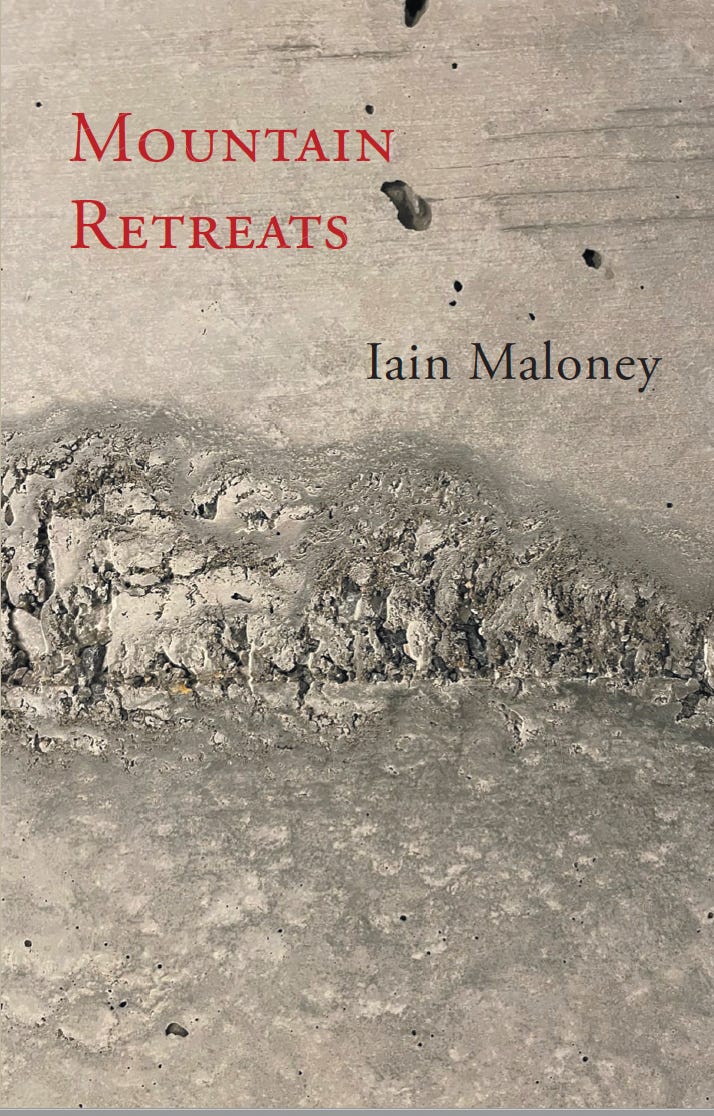A Cracker of a Review
Since you’ve been inundated with me reviewing others the last few weeks, I thought I’d turn it around and share a review of my latest book that was just posted online. It’s a cracker, the reviewer really getting the collection. I was particularly pleased with the paragraph where he makes a distinction between my relationship to the mountains and that of the American poets I mention on the blurb. Every once in a while a reader finds something in your work that you didn’t know was there, or knew subconsciously but had never put into thought or word. Nail on the head, as it were.
The review is part of a longer post which you can read here, but the section on Mountain Retreats I’ve pasted below.
Thank you Billy Mills!
With Iain Maloney’s Mountain Retreats we move from sea level to altitude. The book consists of two sequences, ‘Where the sky begins’ and ‘All of this has happened before’. The second is made up of eight numbered and titled poems and uses the cycle of stone weathering and erosion to approach questions of impermanence and mortality (‘nothing is/forever’), as in these closing lines of the third poem in the set, ‘Frost’:
tortuous fractures
tortuous slowice and melt
ice and meltin ideal conditions
frost weatheringwill gradually pry
our world apart
where much of the impact is in that ‘our’ where the reader might more likely expect ‘the’, shifting the process of fracturing from the mineral to the human. And the key word is process, the world turns, and stuff recurs, with the sequence and book closing with these lines:
all of this
has happened beforeit ends
it startsThat final reversal of an expected order pointing to the future, a possible note of optimism.
‘Where the sky begins’ is a longer sequence consisting of six sets of untitled pieces concerned with illness and recovery, with the mountains being the catalyst for the latter. Time and again the personal moves towards the communal, with images of ordinary experiences that most of us will have shared:
wherever I move
smoke followsmemories
in the blazing
emberssudden shocks
Again, the spirit of haiku is rarely far from the surface:
spitting cherry stones
at the firemiss
as often as not
missingThe back cover note compares these mountain poems to the climbing poems of Gary Snyder and Kenneth Rexroth, and there’s a point to the comparison. However, without wishing to push national distinctions too far, I feel there’s a clear difference between the Scottish Maloney and his American predecessors. While they tend towards portraying the heroic individual against a mountain backdrop, the healing that Maloney’s narrator experiences is as much due to companionship as to altitude:
a new year sunrise
holding hands
at the summitwhere the trees stop
and the skies beginThese final lines from the sequence form a resolution that has been implicit all through; the clarity that climbing can bring is better shared, but there is no sense of preaching here, the ending is arrived at, not imposed.




